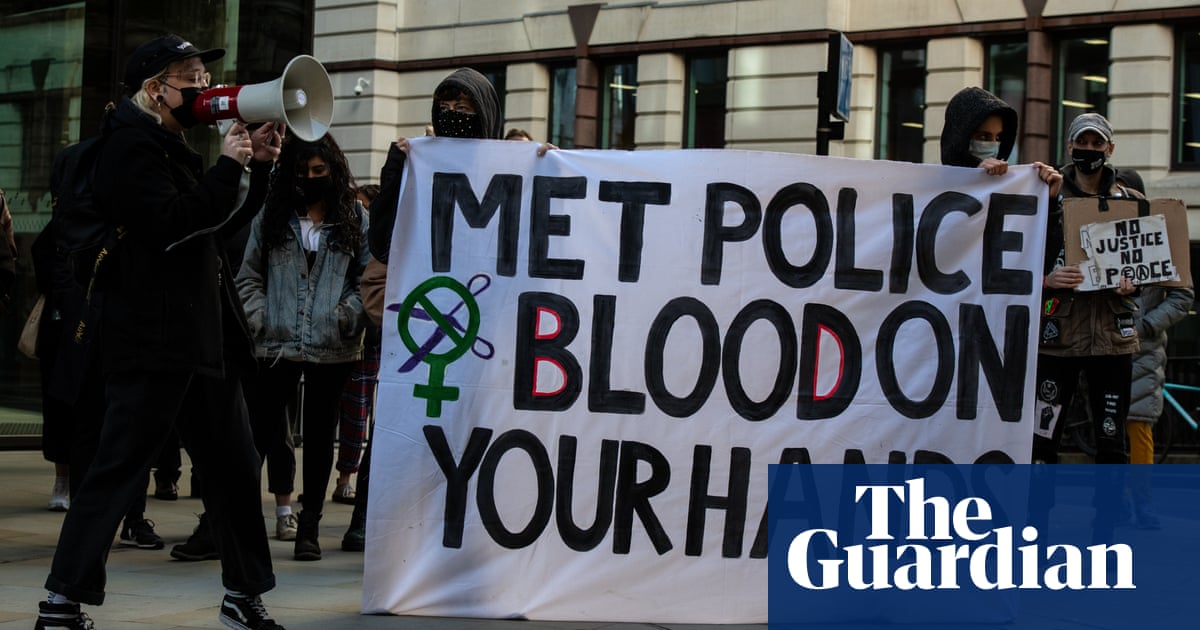
Wayne Couzens is the “worst case example” of why indecent exposure offences need to be taken more seriously, experts have said.
The former Metropolitan police firearms officer is serving a whole-life term for the kidnap, rape and murder of Sarah Everard in March 2021. At the Old Bailey on Monday, the 50-year-old admitted a string of flashing offences, including exposing himself at a drive-through fast food restaurant just four days before Everard’s abduction.
Jennifer Grant, a criminologist at the University of Portsmouth, said Couzens’s subsequent offending shows why indecent exposure needs to be viewed as a serious and sexual crime.
“He’s that validation of why we should take it seriously because we need to stop worst-case examples like Couzens,” she said. “I think every report of indecent exposure should be taken seriously and the number of reports not being taken seriously in this case is an absolute shame, because you’ve got a clear opportunity to try to intervene with Couzens.”
She added: “It’s certainly one of the things that the research points to. Which makes somewhat common sense, is that if someone is continuing to repeatedly indecently expose themselves, especially perhaps gaining in confidence – which it seems certainly like Couzens was, going round and round that drive-through, doing it repeatedly, actually – then that’s screaming to you that this person is potentially increasing in risk and might escalate. He is an awful case example of what escalation can look like at its very worse.”
Grant said research surrounding indecent exposure, and particularly escalation, was limited, but studies suggest that between 5% and 10% of men who indecently expose themselves go on to commit sexual offences involving physical contact.
Grant, who has published a research paper on the subject, said indecent exposure should be treated as “another facet of sexual violence perpetrated predominantly by men, against women”. She said it has, however, traditionally been viewed as a trivial offence.
“Indecent exposure has been seen traditionally as a nuisance offence,” she said. “We’ve got that term, ‘flasher’, which does raise a very unserious image of the 70s comical take on indecent exposure. And that certainly means that there’s been a lack of attention given to it as a sexual offence by society, by academia, and therefore, also by the criminal justice system as well.”
Grant said the trivialisation meant indecent exposure was also underreported. She added that when cases did reach court, the conviction rate was low. ONS figures show that police recorded 10,775 cases of “exposure and voyeurism” in the year to March 2020 but just 594 suspects were taken to court, resulting in 435 guilty verdicts, according to an analysis by the Guardian.
Dr Fiona Vera-Gray, the deputy director of the child and woman abuse studies unit at London Metropolitan University, said: “Because it is so underreported, we can’t use criminal justice statistics to give us any reliable sense of prevalence.
“And it also makes the questions that lots of people are asking now about escalation and if can we intervene earlier really difficult because we’ve got to accept the fact that the vast majority of men who do this are never going anywhere near the criminal justice system. They’re not being reported. They’re definitely not being convicted.”
She added the Couzens case shows the need to start seeing the connections between non-contact and contact offending. “We need to do more to understand that the thinking process of the mind of somebody who would drive around and expose themselves is very similar to the thinking process of someone who then would later go on to abduct, kidnap, rape or murder somebody – that there are connections.
“The problem is how this is seen as a nuisance offence. It’s about that hierarchy of harm. And it’s about the ways that we think about contact offending as being so much worse and so much more serious than non-contact offending. We need to start seeing the connections as a society, and as a criminal justice system.”
Vera Baird, the former victims’ commissioner for England and Wales and police and crime commissioner for Northumbria police, urged police forces to start taking indecent exposure seriously.
“Police need to now say: ‘Wayne Couzens has taught us this lesson, we are going to take this seriously because it looks like it escalates, if he’s anything to go by. Please report it to us.’” And that should be actively encouraged and women praised for doing so,” she said.
“The Couzens case makes the argument of why it’s important. It seems to me that indecent exposure is an aggressive assertion of male sexual power over a woman and that is an appalling attitude, and people who have that view may not stop at indecent exposure.”












